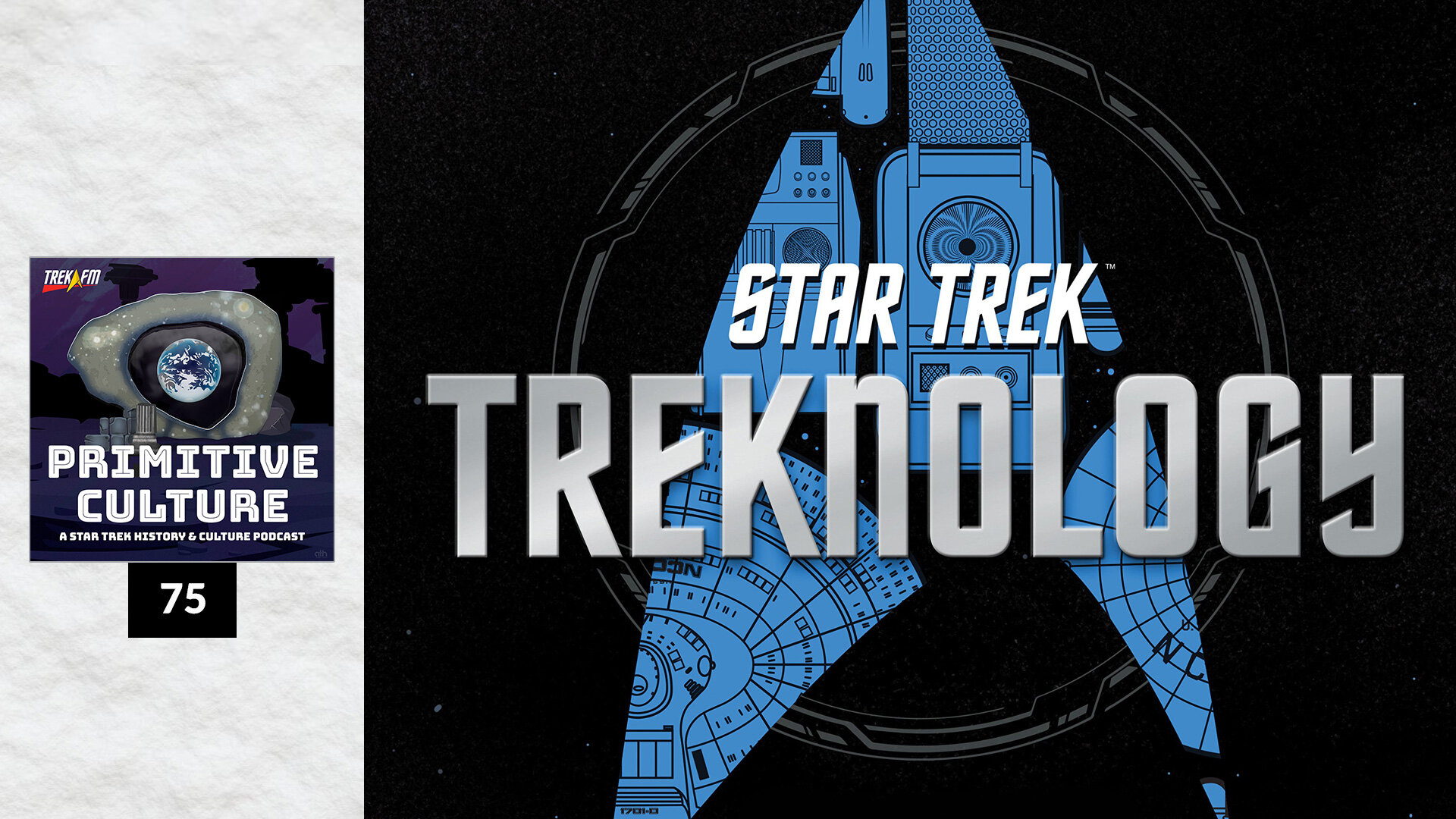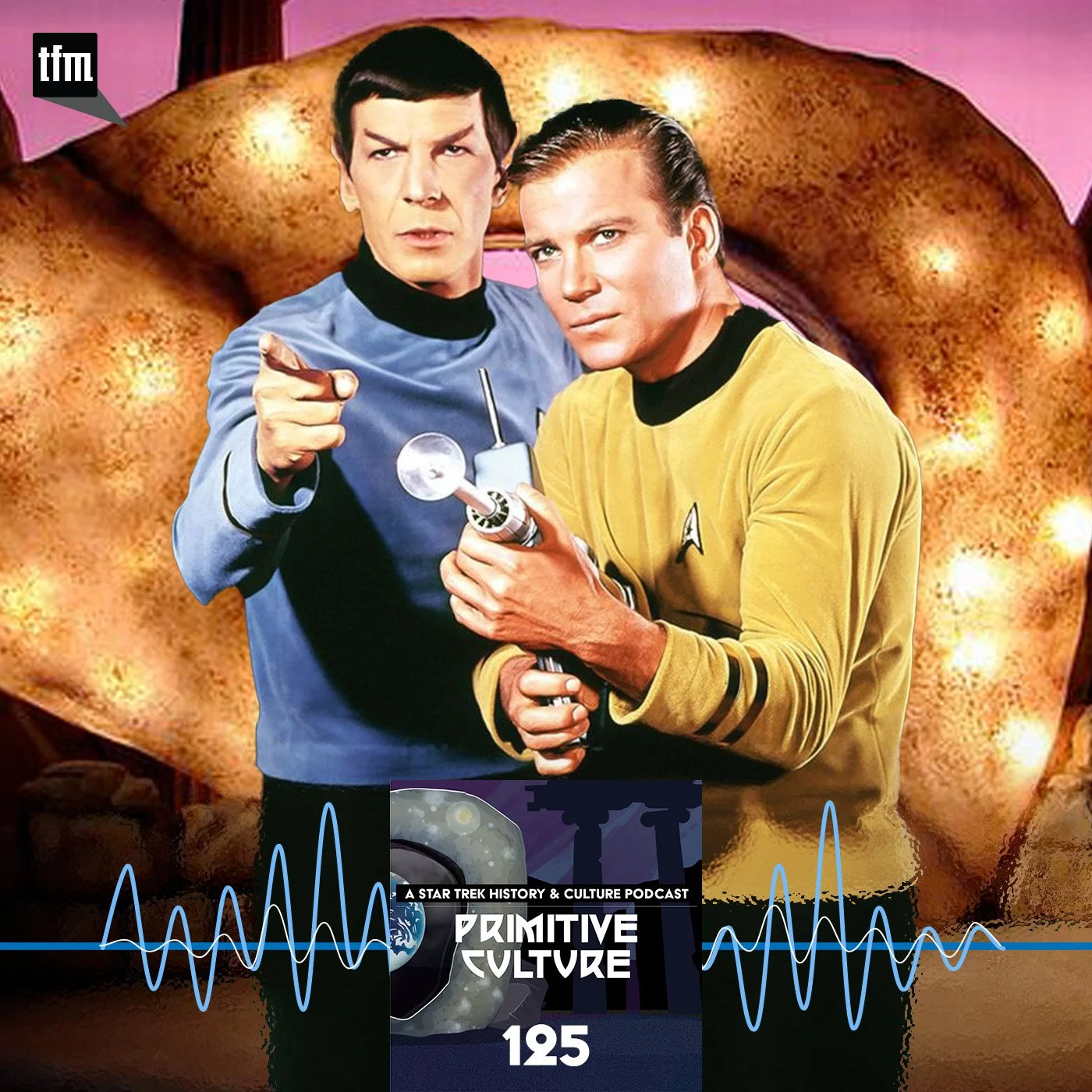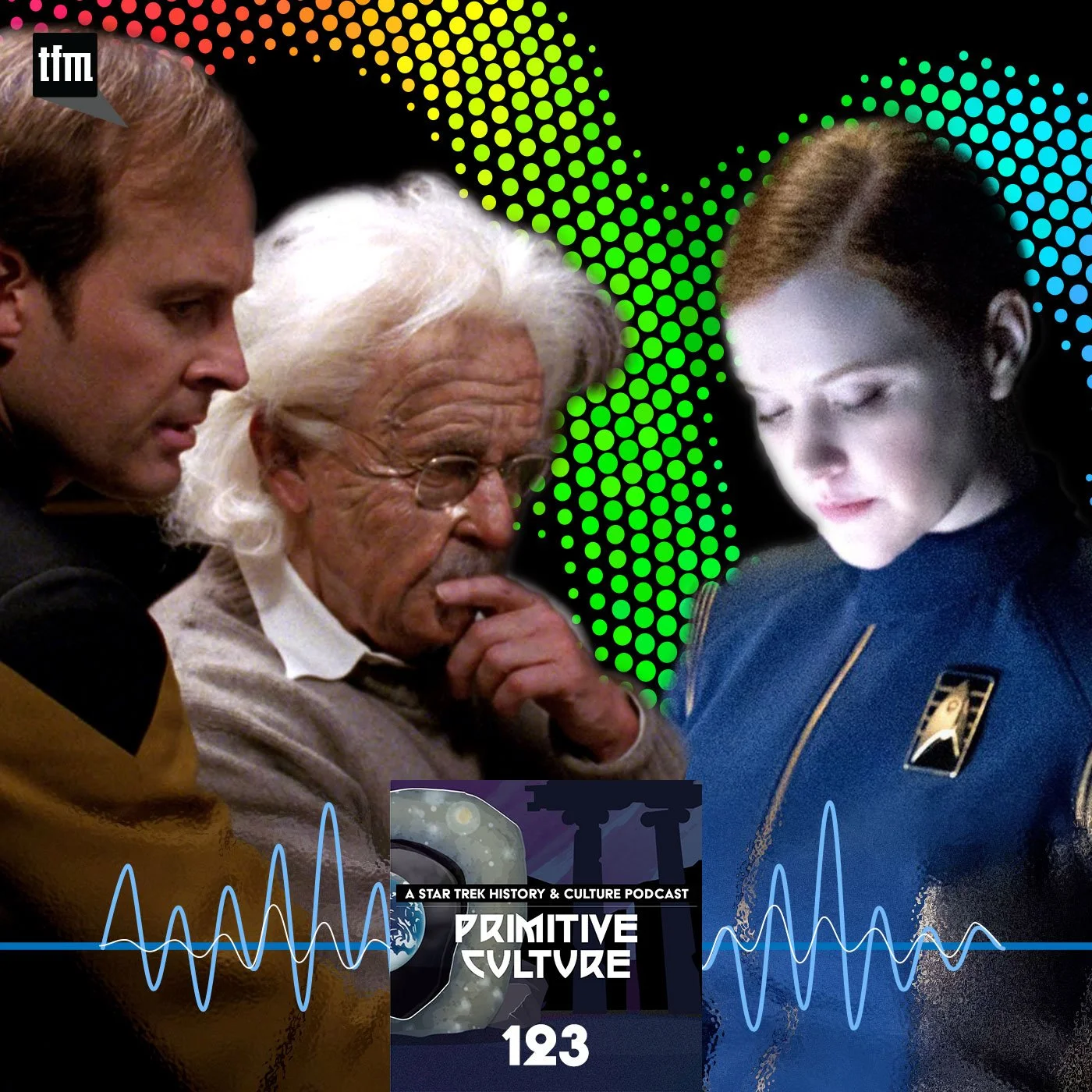Talking Treknology with Ethan Siegel.
Running Time: 57 minute 32 seconds
Download / RSS / Send us a message / Discuss the show / Support Trek.fm
At times, life in 2020 can feel very much like the future we see in Star Trek. We read the latest news on portable tablets and ask our digital assistants to play music or dim the lights. We have instant access to a vast library of collected knowledge and can track our friends and family through their devices. With 3D printing, we can replicate complex designs at the touch of a button. Painless hyposprays have even replaced needles, a relief for those of us who need them.
In this episode of Primitive Culture, host Duncan Barrett is joined by Dr. Ethan Siegel, author of the book Treknology: The Science of Star Trek from Tricorders to Warp Drive, for a look at how Star Trek’s imagined technologies have influenced the development of real-world counterparts. We consider the huge advances seen in the 30 years since Star Trek: Next Generation premiered—not to mention the half century since the launch of the original Star Trek—as well as contemplate some of the ethical quandaries that go along with such rapid technological change.
Chapters
Intro (00:00:00)
Ethical Subroutines (00:09:15)
Treknophobia (00:23:50)
It’s a (Deep) Fake! (00:34:00)
Trek Tech Today (00:40:32)
Host
Duncan Barrett
Guest
Dr. Ethan Siegel
Production
Duncan Barrett (Editor and Producer) C Bryan Jones (Executive Producer) Matthew Rushing (Executive Producer) Ken Tripp (Executive Producer) Tony Black (Associate Producer) Clara Cook (Associate Producer) Norman C. Lao (Associate Producer) Amy Nelson (Associate Producer) Richard Marquez (Production Manager)











